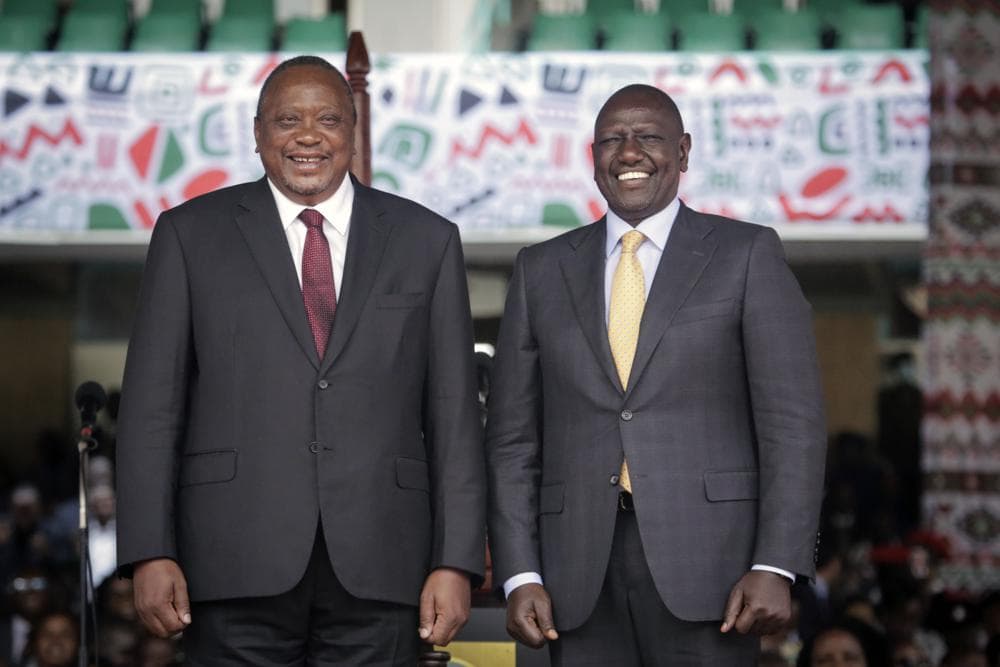We're loading the full news article for you. This includes the article content, images, author information, and related articles.
The joint appearance of President William Ruto, his predecessor Uhuru Kenyatta, and KANU Chairman Gideon Moi at a high-profile democracy forum in Nairobi signals a significant political realignment and a potential thaw in long-standing rivalries.

President William Ruto, former President Uhuru Kenyatta, and KANU party leader Gideon Moi are set to share a public platform this week at the Democracy Union of Africa (DUA) Forum in Nairobi, an event that underscores a notable shift in Kenya's political landscape. The forum, scheduled from Sunday, October 26 to Wednesday, October 29, 2025, will focus on Africa's democratic future and is expected to draw over 300 delegates, including policymakers and former heads of state from across the continent.
Hosted by the Kenya African National Union (KANU), the forum is themed “Navigating Africa's Position in a Multipolar World: Towards a Mutually Beneficial and Equitable Partnership.” The event will take place at the Radisson Blu Hotel and will conclude with discussions at the KANU headquarters. According to the schedule, the official opening will be on Tuesday, October 28, where both President Ruto and Gideon Moi are slated to deliver keynote addresses. A state dinner hosted by Mr. Moi on Wednesday, October 29, is expected to be attended by President Ruto, former President Kenyatta, and Prime Cabinet Secretary Musalia Mudavadi.
This public meeting of the three influential leaders is particularly significant given the recent political history of Kenya. The gathering follows a period of strained relations, especially between President Ruto and his predecessor, Uhuru Kenyatta, which culminated in the contentious 2022 general election. However, recent developments suggest a concerted effort towards reconciliation. President Ruto has publicly stated that he has been in talks with both Kenyatta and Moi as part of a broader strategy to foster national unity. On October 10, 2025, during a meeting in Kabarak, President Ruto confirmed that he had spoken with former President Kenyatta about his plans to unite the country before formalizing an agreement for KANU to join his broad-based government.
Political observers suggest this rapprochement could pave the way for wider national dialogue and cooperation among former political adversaries ahead of the 2027 elections. The inclusion of KANU in the government marks a significant political realignment, potentially bringing the independence-era party back into a central role in Kenyan politics after years in the opposition. Sources familiar with the negotiations indicate that the agreement was solidified after a series of meetings between President Ruto and Gideon Moi in Kenya and Dubai.
The forum's focus on democracy and international partnerships places Kenya at the center of continental dialogue. Gideon Moi, speaking ahead of the event, emphasized its importance, stating, “The 2025 DUA Forum in Nairobi, hosted by Kanu, positions Kenya at the heart of Africa's democratic and international cooperation debate.” The presence of other prominent African leaders, such as former Ghanaian President Nana Akufo-Addo, further elevates the forum's stature.
For Kenya, the coming together of these three figures, who represent powerful political dynasties and constituencies, is a pivotal moment. It signals a move towards a more inclusive and collaborative political environment, which President Ruto has advocated for to achieve his national transformation agenda. The President has repeatedly expressed his goal of elevating Kenya from a third-world to a first-world country, a vision he says requires the collective effort of all leaders. This public display of unity could help stabilize the political climate and focus national attention on economic and social development challenges.
The event also carries symbolic weight, rekindling ties between President Ruto and the Moi family, a relationship with deep historical roots in Kenyan politics. As the leaders gather to discuss the future of democracy in Africa, their actions on the domestic front will be closely watched as a practical example of political reconciliation and its potential to reshape a nation's trajectory. The outcomes of their discussions and the durability of this newfound cooperation will be critical in determining the future course of Kenyan politics.
Keep the conversation in one place—threads here stay linked to the story and in the forums.
Other hot threads
E-sports and Gaming Community in Kenya
Active 8 months ago
The Role of Technology in Modern Agriculture (AgriTech)
Active 8 months ago
Popular Recreational Activities Across Counties
Active 8 months ago
Investing in Youth Sports Development Programs
Active 8 months ago
Key figures and persons of interest featured in this article